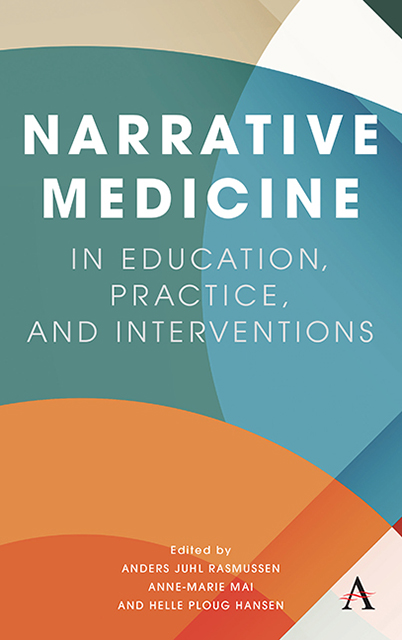Chapter 5 - Connecting Classwork to Clinic: Narrative Medicine for Healthcare Professionals and Students
Published online by Cambridge University Press: 08 June 2023
Summary
This chapter presents narrative medicine as a recurring elective on the five medical master's programs offered at the University of Southern Denmark. Through the application of close reading and creative writing, the course focuses on developing narrative competence in students, allowing them to strengthen their abilities to help patients in the construction of meaningful narratives of their illness. The first part of the chapter takes its starting point in the overall aims of the course with a presentation of its structure and its exercises and with reflections on how students are introduced to concepts that underpin narrative medicine and create an understanding of narratives in the context of illness. The second part presents examples from teaching that are representative of the exercises used. Every exercise described is ac-companied by a presentation of its aims, of the way it is delivered, and of typical experiences deriving from it. Along the way, there are discussions of the pedagogical challenges that can arise when students learn to relate insights from the course to their clinical practice. By providing examples and sharing experiences of teaching, the chapter aims to shed light on the strengths and weaknesses of the methods employed and to inspire others to introduce courses in narrative medicine.
Introduction
The focus of this chapter is the teaching of narrative medicine in a master of science elective course in clinical nursing, midwifery, physiotherapy, occupa-tional therapy, and health science and a pilot course for pharmacists. Teaching narrative medicine includes the training of students’ narrative competence by means of close reading and creative writing (Charon, 2005). These methods Interventionsprovide training in attending closely to “the meanings of a story's language, images, voice, gaps and overall structure, which can strengthen students’ com-petences in listening to, interpreting and being moved to action by the stories communicated by patients” (ibid., p. 4). Following Charon (2006), narrative competence adds to healthcare professionals’ other competencies and helps them to “recogn ize patients and diseases, convey knowledge and regard, join humbly with colleagues, and accompany patients and their families through the ordeals of illness” (Charon, 2006, p. vii). Moreover, health care practiced with narrative competence allows healthcare professionals to reflect more mindfully on what it means to be a caregiver as individuals and as members of a team (ibid., p. 11).
- Type
- Chapter
- Information
- Narrative Medicine in Education, Practice, and Interventions , pp. 85 - 100Publisher: Anthem PressPrint publication year: 2022

